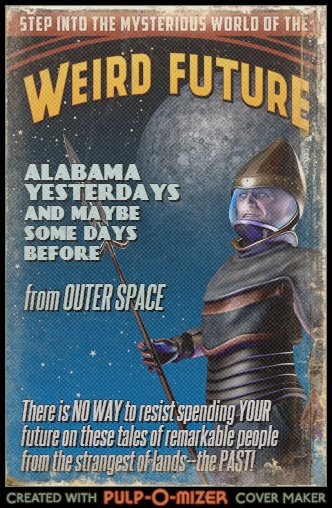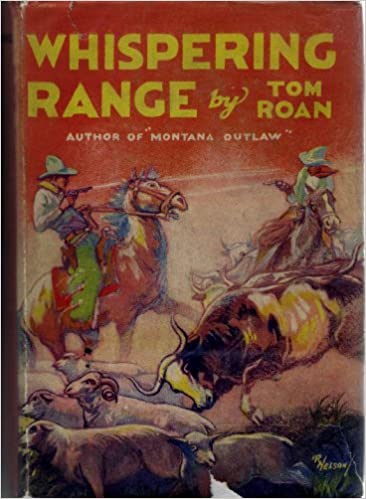In September 2016 I posted an item on this blog about Tom Roan's 1935 short story "Loot Island" which is set in Alabama. Let me quote myself from the beginning of that post about Roan's life; more comments follow.
Although he wrote novels and other types of stories, Tom Roan is best known as the author of hundreds of stories published in the western pulp magazines from the late 1920's until the early 1950's. He's also one of those authors whose life is more unbelievable than most of his fiction.
Roan was born in Snead on Sand Mountain in December 1892. His poor family moved frequently as the men sought jobs. At one point the family lived in Cardiff near Birmingham where his father William worked in a coal mine. Roan left Alabama on a freight train when he was fifteen and headed west.
He ended up in San Francisco, but that was only one of many stops during the next two decades. He served in the U.S. Army from 1913 until 1917, much of the time in Hawaii. Around that period Roan fought for Pancho Villa in Mexico, and worked in a circus, as a private detective and a marshal in various western towns. He was said to have killed five bad men during those days.
Roan returned to Alabama in 1930 with his first wife Marjorie. Soon they were living in Collinsville in DeKalb County. The following year Roan shot Dr. William Preston Hicks several times during a drunken brawl at Roan's home. Three trials later, in 1933, he was finally acquitted. During his time in jail he requested a typewriter so he could keep writing stories. Dr. Hicks, born in 1889, was a 1913 graduate of the Birmingham Medical College.
Marjorie and their daughter left Alabama during the trials, and she divorced Roan. The daughter was later killed in a car wreck in California. Roan would marry again, but they had no children. He died on July 1, 1958, in Sea Bright, New Jersey. He is buried in Fair View Cemetery in Middletown, New Jersey.
Two early novels are autobiographical portraits of Roan's young days in Alabama. Stormy Road was published in 1934 and set in Attalla where Tom spent part of his youth. Black Earth came out the following year and is set in the coal mines around Birmingham.
We probably need to take self-described events in Roan's life before his return to Alabama with a grain of salt. So far researchers such as Bill Plott have found little evidence to support much of it. He notes in a May 2022 email to me:
Roan research is so frustrating because of the difficulty in documenting any of the wild stuff. It is indeed possible that he was with Pancho Villa at one of the battles of Juarez, but where is the documentation and which of the three battles was it? Did he really know Jack London while he was in Hawaii? Possible, but nothing in any of the London biographies I checked suggests that Jack was paling around with any military personnel. And it's a short window, maybe 18 months that London was in Hawaii. Was Roan involved in capturing a notorious killer while working at as a deputy in Bannock County, Idaho? Again, possibly, but the sheriff's department personnel records do not list a Roan or Rowan during that time period. You see the dilemma.
As far as I can determine, these items below, along with one not listed-- The Rio Kid [Godwin, 1935]-- are the only novels Roan published. Life events and the hundreds of stories he turned out in the 1930s, 1940s, and 1950s probably kept him from writing more.
Roan also wrote an occasional article, such as "Alabama Divorce—Cafeteria Style," published in Bluebook May 1953. At that time the state was a mecca for quickie divorces. Even famous people came to the Heart of Dixie. Too bad the state had no casinos to entertain them while they were here.
Burt was a New York publishing firm operating from 1883, until 1937, when the company was bought by Blue Ribbon Books. Doubleday purchased them two years later.
Published by Falcon Books [no. 31], 1952


















































